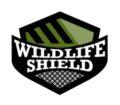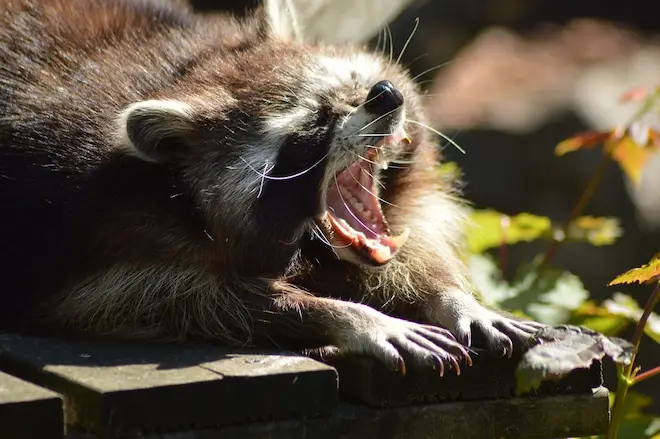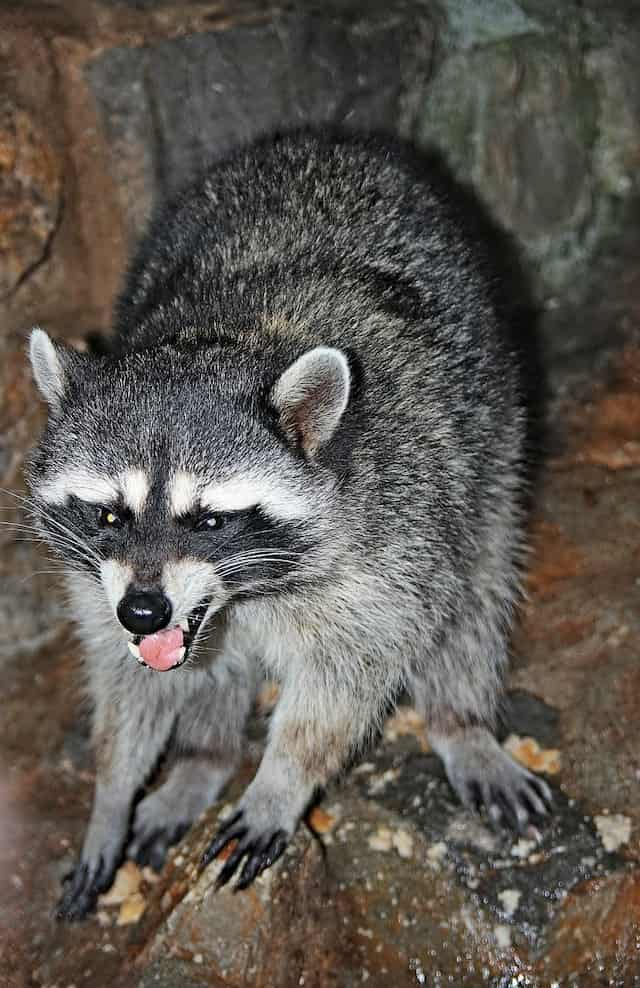Raccoons are mammals that are part of the procyonid family. Raccoons are easily identifiable by their black mask of fur around their eyes. They have longer hind legs which give them a hunched posture. Raccoons are naturally shy animals and will likely retreat when they spot a human. However, as their natural habitat continues to fade away due to urbanization, they are spending more and more time close to humans.
It is important to note that even if a raccoon seems friendly, you need to stay clear. A raccoon’s cuteness is often a catalyst for an attack. Raccoons resemble exotic pets, and you might be tempted to touch them. If you feed a raccoon, it will come right up to you and take the food from your fingertips without harming you. However, it’s never a wise decision to feed these animals. Raccoons are aggressive and territorial animals and are dangerous when cornered. Their presence around your property also poses a serious health risk to both you and your family.
Are Raccoons dangerous?
According to the dictionary, the word dangerous means able to cause death or have adverse effects. Do raccoons fit this description? Well, I don’t think so. It’s too much to imply that raccoons can kill, however, in some rare cases the presence of a raccoon can be fatal to humans as well as pets.
Raccoons along with skunks, foxes, and bats are considered to be primary carriers of rabies in Canada and the United States. While any mammal can carry rabies, raccoons are known as rabies vector species. According to the CDC (Center for Disease Control), only one person has died from a raccoon rabies strain. A raccoon that has rabies dies within one to three days after infection. It’s also important to note that if a raccoon bites you, there is an effective post-exposure treatment.
If you spot a raccoon during the day, there is no need to panic, it might not necessarily be rabid, sometimes raccoons are known to forage for food during the day, especially when nursing their young.
Raccoons are also known to infect humans and pets with roundworms. The raccoon roundworm is also known as the Baylisascaris is normally found in the feces of raccoons. It’s important that you prevent raccoons from getting into your attic. In case you spot raccoons in your attic, get a professional raccoon removal expert in Scarborough to get rid of them and their feces. If young children or pets get into contact with feces, they could get infected.
Leptospirosis is also caused by a bacterium that infects raccoons. Humans may get exposed to this disease in case they get into contact with infected droppings or contaminated water or soil. It’s important that you avoid touching raccoons. If you need to get a raccoon out of your property, call us: 647-557-7932
Raccoons rarely attack humans, unless provoked. They arch their backs in defence but rarely attack. In case you notice a raccoon that is disoriented or attacks unprovoked, it may be rabid. When you notice these signs, stay clear and call a professional immediately.
What causes rabies?
Rabies is caused by the Rabies virus that can be transmitted to pets and humans through bites by an infected animal. Across the world, the most common carrier of rabies is wild foxes. However, in Canada, raccoons are considered as a primary carrier and transmitter of the disease. Any mammal can transmit rabies, but raccoons are at a higher risk.
It’s important to remember that dealing with a potentially rabid raccoon is not something you want to do on your own. Raccoons can transmit the rabies virus to all other mammals including human beings.
Signs a raccoon might be rabid
The following are signs and symptoms of a rabies raccoon.
- Rabid raccoons often look sick. While raccoons can contract some diseases, you shouldn’t attempt going close to a sick raccoon, call a wildlife expert instead.
- A rabid raccoon will foam at the mouth. Foaming is perhaps one of the most common symptoms of rabies in animals. In case you spot this, stay clear.
- Raccoons infected with rabies will make strange noises. While it’s common for raccoons to make chattering noises, a rabid raccoon will make an uncommon noise.
- Rabid raccoons look confused, slow or disoriented. Healthy raccoons are active animals; they are always busy looking for food and going about their business.
- The rabies-infected raccoon has a difficult time walking. Rabies causes paralysis in animals.
What should I do if bitten by a Raccoon?
Raccoons are found in both rural and urban areas. Their presence in the human dwelling is often seen as a nuisance. In Canada, raccoons are considered to be primary carriers of rabies and people tend to get cautious around them.
In case you have been bitten by a raccoon that you suspect has rabies, it is best to seek quick medical assistance since the chances of having the virus cannot be excluded. It doesn’t matter if the raccoon is not rabid, you will still need to take the required medication for the bite. Please note that this is not something that you could take lightly since tough complications are normally associated.
How can I prevent myself from rabid raccoons?
ildlife control professionals can monitor the signs of raccoon presence by looking for tracks, and droppings and visually observing them in your property or trash; Property owners can prevent raccoons from getting into their properties and potentially posing a rabies threat by removing any food sources in their property and securing their trash cans tightly.
You could also prevent them from getting into your property by ensuring your fence, vents, crawl spaces, chimneys, and potential entry points are sealed. You can contact us for an exclusion quote.
How to Dispose of a dead rabid raccoon
If you notice a dead raccoon in your property, it is important that you try to get rid of it fast. Having a dead raccoon on your property can lead to several problems. A dead raccoon can potentially spread diseases to you and your family. It could also attract other wild animals, as well as produce an unpleasant stench. A dead raccoon whether rabid or not needs to bed is posed properly as soon as you discover it.
Handling a dead raccoon needs a lot of care, as well as specialized equipment if you are unsure about this, it’s best to call in an expert wildlife removal company to step in for you. It’s also important that pets and young children be kept away as far as possible from the carcass.
The following are steps you could use to dispose of a dead rabid raccoon on your property.
- First, put on latex gloves for protection. Since it’s rabid, it could also be harbouring other diseases, and you wouldn’t want any of its body fluids on your skin. It’s recommended that you wear at least two pairs of latex gloves. Have long-sleeved clothes to ensure your body is completely covered.
- When it’s time to move the body, avoid using your hands as much as possible even if you are protected by latex gloves. Use a shovel instead to lift the body of the raccoon. Raccoons are known to weigh up to 20lbs, therefore, ensure you place the shovel under the raccoon’s body while lifting.
- Place the body of the rabid dead raccoon in a trash bag. You can ask someone wearing latex gloves to open up the trash bag. However, if you are alone, place the trash bag open in the ground and place the body of the dead raccoon into it. Double bag it and tie it securely.
- Place the double-bagged trash bag in a cardboard box and tape it. The cardboard box helps keep predators away. Don’t keep this box anywhere inside your house or structures, place it outside for the garbage truck to pick it up in case you pay for this service.
Property owners always have a chance to prevent raccoon problems. If you take the required preventive measures that prevent raccoons from getting into your property, you will rarely have raccoon problems. It’s very important that you make your home as uninviting as possible for raccoons. If you want to find out how to get rid of raccoons in your property, get in touch with us. Our professionals will be more than happy to assist: 647-557-7932


